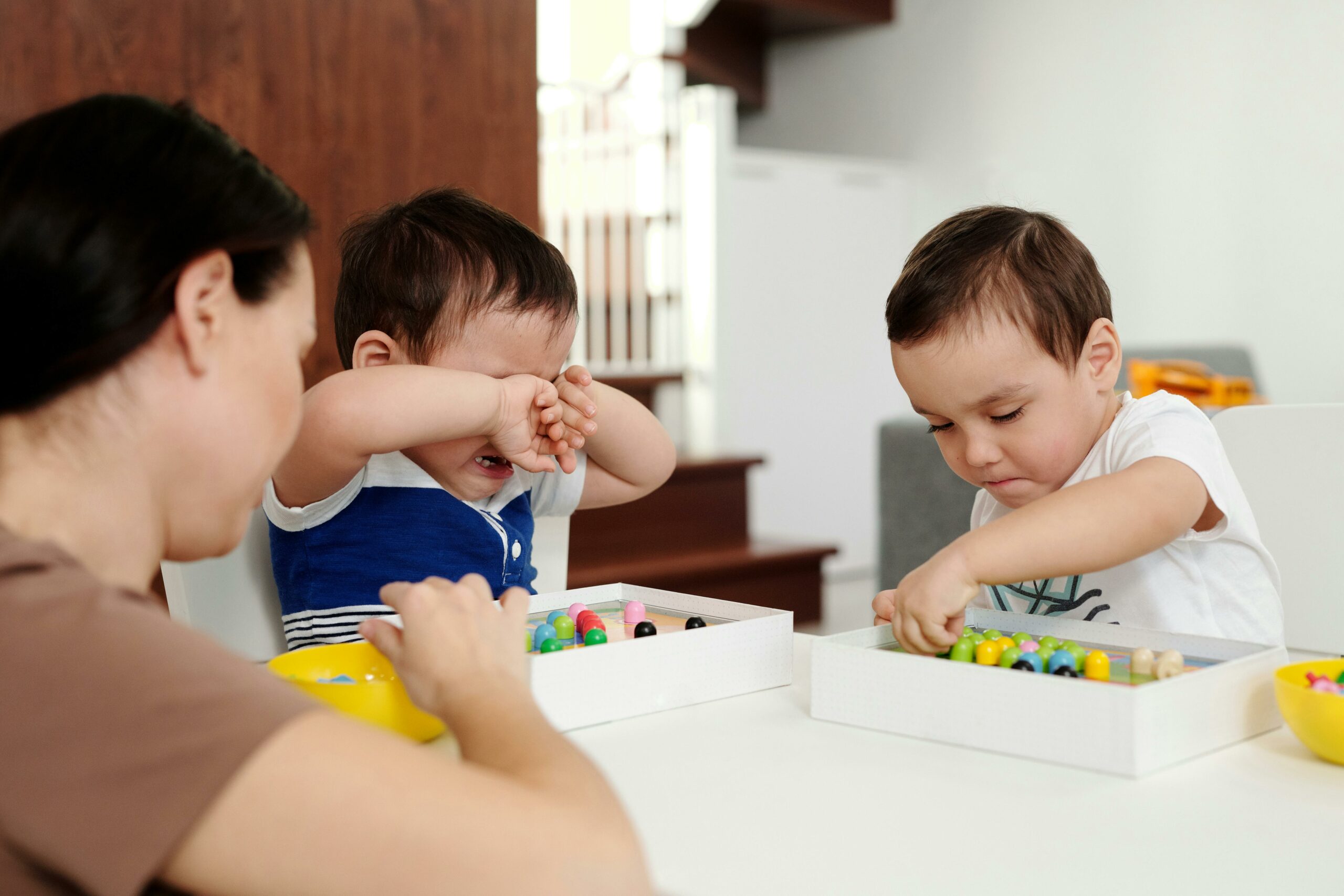Guiding Anxious Parents: Managing Anxiety in Parenting Life
Managing the challenges of parenting with anxiety may seem overwhelming, but remember, you’re not alone in this journey. Seek support from friends, family, or support groups to share your struggles and find comfort. Take time for self-care to reduce stress levels and practice mindfulness to ease anxious thoughts. Building a strong support system and developing coping strategies are key steps. Effective communication and setting boundaries with technology will also help. Remember, with the right strategies and support, you can find balance and peace in your parenting journey.
Key Takeaways
- Seek support from friends, family, or support groups to alleviate anxiety.
- Practice mindfulness and self-care for stress relief in parenting.
- Set boundaries on screen time to balance technology use.
- Develop coping strategies and stress management techniques.
- Consider seeking professional help for overwhelming anxiety in parenting.
Understanding Parental Anxiety

If you’re a parent, understanding parental anxiety is essential in managing the challenges of raising children. It’s important to feel overwhelmed at times, but it’s key to remember that you’re not alone in this journey. Seeking parental support from friends, family, or support groups can provide you with a sense of community and reassurance that others share similar struggles.
When facing parental anxiety, coping mechanisms play an essential role in helping you navigate through difficult moments. Taking time for self-care, whether it’s through exercise, meditation, or hobbies, can greatly reduce stress levels and improve your overall well-being.
Additionally, practicing mindfulness and staying present in the moment can help alleviate anxious thoughts about the future.
Setting Boundaries With Technology
Establishing clear boundaries with technology is essential in maintaining a healthy balance in your parenting life. Screen time can easily become overwhelming, affecting both your children and your own well-being. Setting limits on screen time can help create space for meaningful connections and activities.
Consider implementing designated tech-free times or zones in your home to encourage more face-to-face interaction and quality time with your family.
Incorporating a digital detox into your routine can also be beneficial. Encourage activities that don’t involve screens, such as outdoor play, reading books, or engaging in creative projects.
Modeling a healthy relationship with technology can positively influence your children’s behavior and help them develop a balanced approach to screen time.
Prioritizing Self-Care Practices

You deserve moments of self-care amidst the chaos of parenting life. Prioritizing self-care isn’t selfish; it’s necessary to be the best parent you can be.
Self-Care Importance
Prioritizing self-care practices is essential for managing anxiety in parenting life. As a parent, it’s natural to put your child’s needs first, but neglecting your own well-being can lead to increased stress and anxiety. By incorporating self-care into your routine, you can better manage these feelings and be more present for your children.
Engaging in activities that promote stress relief, such as meditation, exercise, or hobbies you enjoy, can have a substantial impact on your overall mental health.
Mindful parenting, which involves being fully present and attentive to your child without judgment, can also help alleviate anxiety. Taking moments throughout the day to practice mindfulness can help you stay grounded and connected to the present moment.
Daily Self-Care Routines
To effectively manage anxiety in your parenting life, incorporating daily self-care routines is essential. Starting your day with morning meditation can set a positive tone, helping you feel more centered and prepared to tackle the challenges of parenting. Even just a few minutes of quiet reflection can make a significant difference in how you approach the day ahead.
Incorporating evening exercise into your routine can also play an important role in managing anxiety. Physical activity not only helps relieve stress but also promotes better sleep, which is crucial for your overall well-being. Whether it’s a brisk walk, yoga session, or a quick workout, finding time to move your body in the evening can help release tension and improve your mood.
Self-Care Mindset Shift
Shifting your mindset towards prioritizing self-care practices can greatly enhance your ability to manage anxiety in your parenting life. It’s important to recognize that taking care of yourself isn’t a selfish act but a necessary one to be the best parent you can be.
Incorporating mindfulness practices into your daily routine can help you stay present and reduce stress levels. Mindfulness allows you to focus on the present moment, letting go of worries about the past or future. By practicing mindfulness, you can cultivate a sense of calm and clarity that can positively impact how you navigate the challenges of parenting.
Stress management is another essential aspect of self-care that can significantly benefit your mental well-being. Finding healthy ways to cope with stress, such as exercise, journaling, or talking to a supportive friend, can help you maintain a balanced perspective when faced with anxiety-inducing situations.
Building a Support System

Consider reaching out to friends, family members, or local parenting groups to start building a strong support system that can help you navigate the challenges of parenting with anxiety.
Building connections and finding a community of understanding individuals can provide a sense of belonging and relief in knowing that you aren’t alone in your struggles.
Creating support networks and fostering relationships with people who can offer empathy and practical help can greatly lighten the emotional load that comes with parenting while dealing with anxiety.
Friends and family members can offer a listening ear, share their experiences, and provide valuable advice.
Joining local parenting groups or online communities can also be a great way to connect with others who are going through similar experiences.
These groups often offer a platform for sharing resources, seeking guidance, and forming friendships that can last a lifetime.
Developing Coping Strategies
When facing the challenges of parenting with anxiety, developing coping strategies can be vital in helping you navigate the daily uncertainties and stressors that may arise. Stress management plays a pivotal role in maintaining your well-being as a parent. It’s imperative to identify what triggers your stress and find healthy ways to address it. This could involve setting realistic expectations, prioritizing tasks, and seeking support when needed. Remember, it’s perfectly acceptable to ask for help.
Incorporating mindfulness techniques into your daily routine can also be advantageous. Mindfulness helps you stay present in the moment, reducing the tendency to dwell on past mistakes or worry about the future. Simple practices like deep breathing, meditation, or mindful walks can help you stay grounded and calm amidst the chaos of parenting life.
Effective Communication Tips
When it comes to managing anxiety in your parenting journey, effective communication plays an essential role. Clear communication strategies help in expressing your thoughts and feelings openly. Active listening techniques enhance understanding between you and your child. Setting boundaries together fosters a healthy and respectful relationship.

Clear Communication Strategies
Utilize active listening techniques to enhance your communication with your children and cultivate a deeper understanding of their thoughts and emotions. Mindful parenting involves being present and engaged in your interactions with your child, which includes clear communication strategies.
Positive discipline is reinforced through effective communication that’s empathetic and supportive. When communicating with your child, it’s essential to maintain a calm and understanding demeanor to foster a safe space for open dialogue.
Clear communication strategies involve being concise and precise in your messages while also being attentive to your child’s verbal and non-verbal cues. Use language that’s age-appropriate and easily understandable for your child to promote effective communication.
Encourage your child to express their thoughts and emotions openly by actively listening to what they’ve to say without judgment.
Active Listening Techniques
Enhance your communication skills by actively listening to your children, creating a strong foundation for understanding and connection in your parenting journey.
Active listening benefits parent-child communication by fostering trust and strengthening your relationship with your child. When you actively listen, you show your child that their thoughts and feelings are valuable, building their self-esteem and encouraging open dialogue.
To practice active listening, start by giving your full attention to your child when they speak. Maintain eye contact, nod to show you’re engaged, and avoid interrupting. Reflect back on what they’ve said to make sure you understand correctly, and ask open-ended questions to probe deeper into their thoughts.
Setting Boundaries Together
Establishing boundaries together with your child through effective communication is key to fostering a healthy and respectful parent-child relationship. In co-parenting dynamics, it’s essential for both parents to be on the same page when it comes to setting boundaries.
Consistent discipline is vital in reinforcing these boundaries and ensuring that they’re respected by your child. When discussing boundaries with your child, approach the conversation with empathy and understanding. Clearly explain the reasons behind the boundaries you’re setting and encourage your child to ask questions or express any concerns they may have.
This open dialogue helps build trust and mutual respect between you and your child. In co-parenting situations, it’s important for both parents to present a united front when it comes to setting and enforcing boundaries. Consistency is key in helping your child understand the expectations and limits in place.
Embracing Imperfection in Parenting

Embracing imperfection in parenting can be a liberating and empowering approach that allows you to focus on connection rather than perfection. Parenting struggles are a natural part of raising children, and it’s important to acknowledge that no one is a perfect parent. By embracing imperfections, you can cultivate self-compassion and develop a growth mindset that focuses on learning and improvement rather than unrealistic standards.
Parenting is a journey filled with ups and downs, and it’s okay to make mistakes along the way. Self-compassion involves treating yourself with kindness and understanding when faced with challenges. Instead of being hard on yourself for not meeting every expectation, try to practice self-forgiveness and move forward with a positive outlook.
Remember that growth comes from embracing imperfections and learning from them. By adopting a mindset that values progress over perfection, you can create a more nurturing and supportive environment for both yourself and your children.
Seeking Professional Help When Needed
When facing overwhelming anxiety or uncertainty in your parenting journey, don’t hesitate to reach out for professional help to navigate through these challenges effectively. Seeking therapy options can provide you with coping mechanisms and strategies to manage your mental health while raising your children. Therapists can offer valuable guidance and support tailored to your specific needs, helping you address the root causes of your anxiety and develop effective ways to cope with it.
Remember, seeking professional help doesn’t mean you’re failing as a parent. It means you’re taking proactive steps to prioritize your mental well-being, which ultimately benefits both you and your children.
Additionally, parental support groups can be a valuable resource where you can connect with other parents facing similar challenges, share experiences, and learn from one another.
Frequently Asked Questions
How Can I Manage My Anxiety Without Medication?
You can manage anxiety without medication by practicing mindfulness techniques and therapy to address root causes. Incorporate exercise and self-care techniques into your routine to promote mental well-being. Remember, seeking help is a sign of strength.
Is It Normal for Parenting Anxiety to Affect My Sleep?
It’s common for parenting stress to impact your sleep. Sleep disturbances can worsen with anxiety. Try relaxation techniques like deep breathing or meditation to improve sleep quality. Seeking support from loved ones or professionals can also help.
Can Parenting Anxiety Impact My Child’s Mental Health?
Parental influence is significant in shaping a child’s mental health. Managing anxiety effectively is essential. Your healthy coping strategies can positively impact your child’s well-being. Seek support, practice self-care, and model resilience to create a nurturing environment.
What Are Some Quick Relaxation Techniques for Anxious Parents?
When feeling anxious, try deep breathing exercises to calm your mind. Practice mindfulness techniques to stay present and focused. Use visualization to imagine a peaceful place. Try progressive muscle relaxation to release tension. These techniques can help manage parenting anxiety.
How Do I Address Parenting Anxiety Without Burdening My Children?
To address parenting anxiety without burdening your children, try self-care strategies like deep breathing and journaling. Enhance communication skills by expressing feelings openly. Practice mindfulness to stay present. Build a strong support network for guidance and reassurance.
Conclusion
Remember, it’s normal to feel anxious as a parent. By setting boundaries with technology, prioritizing self-care, building a support system, and developing coping strategies, you can navigate through the challenges of parenting with more ease.
Effective communication and embracing imperfection are key in managing anxiety. Remember, it’s okay to seek professional help when needed.
You aren’t alone in this journey, and with the right tools and support, you can overcome parental anxiety and thrive as a parent.

Hey there! 👋 I’m a proud mom and passionate writer, sharing my parenting journey. 📝 Join me as I navigate the ups and downs of motherhood, offering tips, advice, and a sprinkle of humor along the way. 🌟







